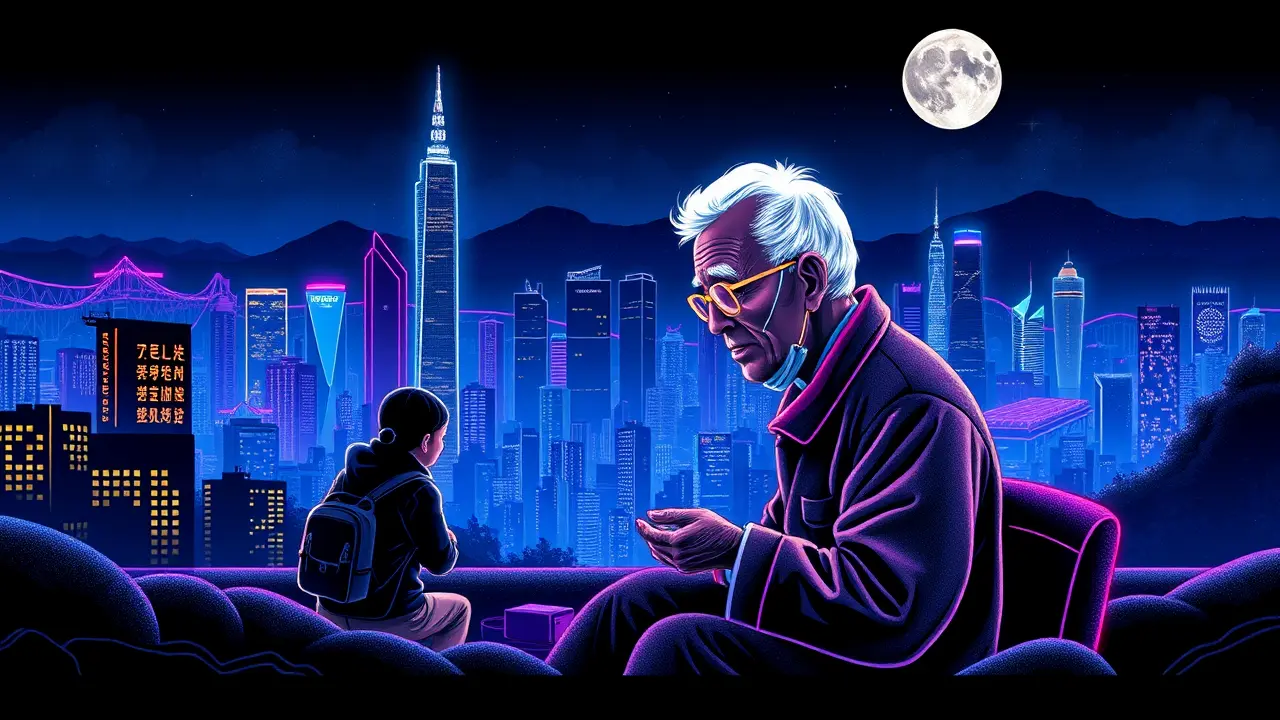Elderly in Hong Kong Share Stories with Younger Generation
There’s a particular alchemy that occurs when generations collide not in conflict, but in communion, a quiet magic I’ve witnessed time and again in my conversations with people from all walks of life. It’s a magic that Hongkonger Wong Yiu-ming, a spry 71-year-old who once helmed the deputy executive vice-chairmanship of a listed company, discovered only after he’d stepped away from the corporate battlefield.He confessed to me, with a reflective tone that many retirees share, about the profound uncertainty that shadowed his post-retirement days—a feeling of being suddenly unmoored from the societal role that had defined him for decades. 'We thought we were the teachers, the ones with the weathered maps of life,' Wong shared, his eyes crinkling at the corners, 'but in truth, the young people held up a mirror.They helped us see ourselves differently, not as relics of a bygone era, but as living libraries, our wrinkles not just signs of age but the topography of our experiences. ' This revelation didn’t emerge from a solitary epiphany but from a beautifully simple, yet profoundly impactful, initiative that has seen Wong and approximately sixty other elderly Hong Kong residents step out of their living rooms and into classrooms, bustling community centres, and even the unexpected intimacy of shopping centres to share the unvarnished stories of their lives.The program, which operates on the fundamental human need for narrative connection, is more than just an exercise in reminiscence; it is a vital thread in the social fabric of a city often characterized by its breakneck pace and towering skyscrapers, a deliberate counterpoint to the isolation that can so easily seep into the lives of its older citizens. Imagine the scene: a classroom of teenagers, their attention typically fractured by digital screens, leaning forward, utterly captivated as a woman in her eighties describes fleeing across the border during the tumultuous mid-century, her voice a steady bridge to a Hong Kong they’ve only ever seen in grainy photographs.Or a community hall where a former shipyard worker, his hands still bearing the calluses of his trade, explains the visceral sound of metal meeting metal, painting a sonic picture of the Victoria Harbour that once was, a world away from the financial hub it is today. These are not sanitized history lessons from a textbook; they are raw, emotional transmissions of memory, carrying with them the weight of lived experience, the joy of past triumphs, and the quiet ache of losses endured.The psychological impact on the storytellers is, by all accounts, transformative. For Wong, the act of articulating his journey—from his humble beginnings to the pressures of the boardroom—was an act of self-reclamation.It granted him a renewed sense of purpose, a confidence rooted not in his former title, but in the intrinsic value of his personal narrative. Sociologists who study intergenerational communication often speak of 'ego-integrity,' a concept from Erik Erikson’s stages of psychosocial development, where later life is a time to reflect on one’s story and achieve a sense of coherence and meaning.This initiative provides a structured, socially valued pathway to that very integration, effectively combatting the despair that can accompany feeling obsolete. For the younger generation, the benefits are equally profound.In a city and a world where the future can seem increasingly precarious, these stories offer grounding. They are masterclasses in resilience, providing context for the present and a deeper, more empathetic understanding of the forces—economic, political, social—that shaped their home.A student who hears firsthand about the austerity of the post-war years gains a new perspective on economic cycles; another who listens to tales of community solidarity in cramped tenement buildings begins to see the concept of 'neighbourliness' in a completely new light. This is the antithesis of the generational warfare so often sensationalized in media; it is a quiet, persistent project of building social cohesion, one story at a time.The model itself, while seemingly straightforward, touches upon complex themes of memory, identity, and the oral tradition in an increasingly digital age. It raises compelling questions about how we, as a society, choose to value the wisdom of our elders outside of purely economic metrics.Is a person’s worth solely tied to their productive output, or does it reside in the richness of their experiences and their capacity to guide those who follow? Programs like this, sprouting up in various forms from Singapore to Scotland, suggest a growing recognition of the latter. They are a gentle rebellion against the marginalization of age, an affirmation that every life is a novel worth reading, and that in the exchange between the one who has seen the seasons turn and the one who is just beginning to bloom, both are irrevocably changed, their horizons expanded in a mutual act of listening and being heard.
JA
Jamie Lowe123k5 hours ago
tbh this is a nice change from the usual doomscrolling, we need more of this stuff smh
0
CH
Chloe Miller123k7 hours ago
according to the data on social connection this is a pretty efficient model, 60 participants is a solid start for measuring impact tbh
0
JA
Jamie Larson123k9 hours ago
saving this to read properly later tbh i love the idea of just listening to people's stories
0
JA
Jamie Wilson123k9 hours ago
this is such a beautiful idea tbh we need more of this
0
JA
Jamie Larson123k10 hours ago
ok this actually made me tear up a little ngl we need more of this stuff for real
0
JA
Jamie Larson123k11 hours ago
okay this actually got me emotional ngl we need more of this stuff for real
0
